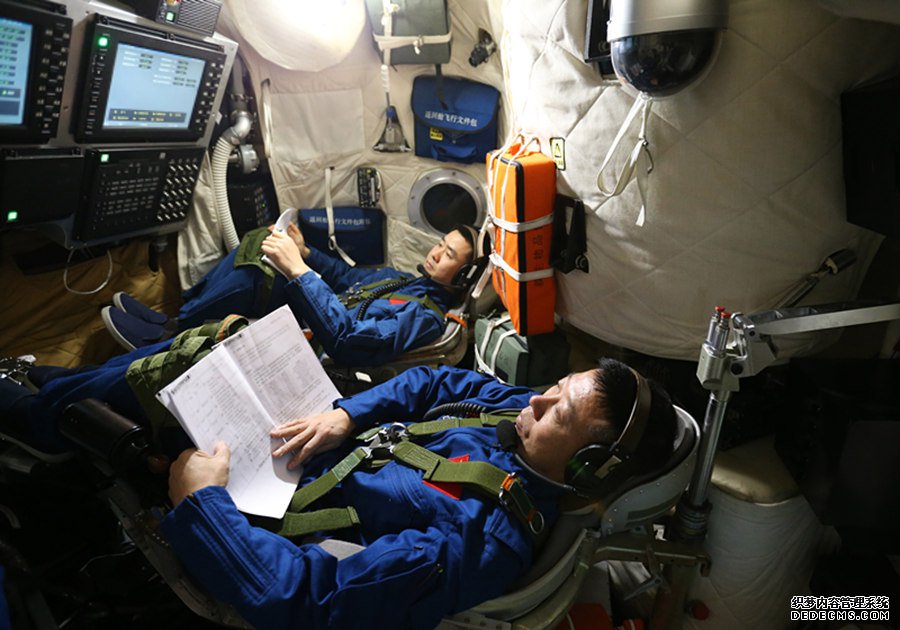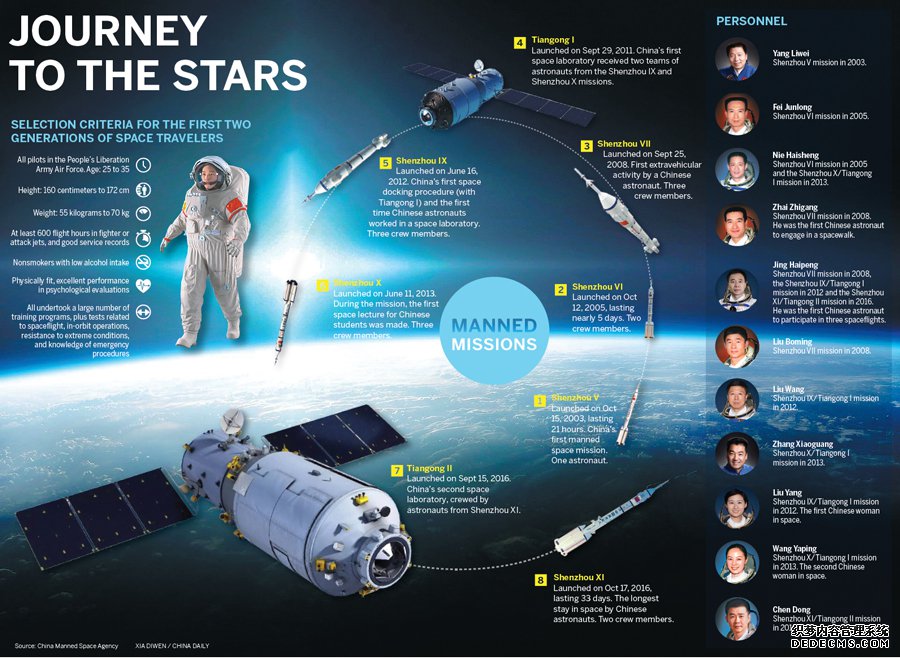- 烈焰私服
China's astronauts prepare for a new era of exploration
-
In 2013, when Liu Yang, the first Chinese woman in space, attended a seminar at a middle school in Beijing, a student told her that he had been inspired by her story and wanted to become an astronaut.
"Missions to the space station will last much longer than previous assignments. The station's systems will be more advanced and sophisticated than those on the Shenzhou series of spacecraft and the Tiangong space laboratories, so the astronauts will require far greater knowledge, ability and skill," said Fei Junlong, who was sent into space aboard Shenzhou VI in 2005.
During his 600,000-kilometer expedition, 343 km above the planet, the then-38-year-old Yang simultaneously displayed the Chinese and UN flags to hundreds of millions of Chinese who were witnessing his feat on television, and said in both Chinese and English, "Make use of outer space peacefully and for the benefit of all humankind."
Wang Yaping, the female astronaut who delivered a science lecture to students from the Tiangong I space lab, said she felt humbled by the number of boys and girls who wrote to her upon her return.
The astronauts have also overcome hardships and difficulties during missions.
He also gave Liu a photo that had been taken by his grandmother, a retired professor at the prestigious Beihang University in Beijing, at a ceremony held at the university several months before. On the back of the photo, the elderly women had written, "We salute those who contribute to our endeavors in space."
In most suburbs of Beijing, the word "skyrocket" is usually used to describe the soaring price of property that has resulted from China's rapid urbanization and the thriving real estate market.
"In the past 20 years, none of our astronauts has pressed the emergency button to halt the program. They all persisted," Li said.

Although China has trained 21 astronauts over two generations, only 11 of them have taken part in the nation's six manned space missions. The third batch of trainees will be chosen this year.
Away from the glamour, though, the nation's astronauts endure countless rounds of training, tests and drills, shedding sweat and owing an enormous debt to their families.
If the United States-led International Space Station is retired as planned in 2024, the new, as yet unnamed, Chinese facility will become the only permanent space station.
相关链接>>
"We are lucky to be in this great 'New Era'. We must race against time to prepare for the upcoming space station mission," said Liu Boming, who took part in the Shenzhou VII mission in 2008.
They discovered that their pessimism had been unfounded; the spacecraft was not damaged when they forced the hatch and the fire alarm was a false alert.
In the 14 years since Yang's momentous journey, China has evolved from a second-tier player in the global space race into a great power.
The nation is planning its most ambitious project yet; a manned facility that will act as a base for experiments and further exploration.
Yang Liwei recalled being in Shenzhou V atop a Long March 2F rocket ascending toward the sky, when a low-frequency oscillation made his internal organs vibrate violently, inflicting almost unbearable pain. He said he gritted his teeth and told himself to endure the pain because he was about to realize the nation's enduring dream of flying in space.

Candidates for the space station mission will be chosen according to their performance in training and through expert assessment, so no one yet knows who will be the first to board the station.
Chen Dong and Liu Wang train for a mission. [Photo/China Daily]
Chinese astronauts have also undertaken extravehicular activity, conducted several extended missions inside the Tiangong I and II space labs, and delivered a 40-minute lecture from space that was watched by more than 60 million students at about 80,000 schools.
Yang recalled that during a visit to New York in 2004, an 80-something Chinese-American held his hands and tearfully told him that for overseas Chinese, the nation's achievements in space reflected the fact that "our motherland has risen", which gave them renewed courage and strength.
China's Second Space Day focuses on earthly applications of astronaut tech"We had no time for discussion. We knew what was in each other's mind at that very moment: we had to accomplish our mission and wave the Chinese flag in space, even though we realized that there would probably be no return trip for us," Zhai said.
- 共3页:
- 上一页
- 1
- 2
- 3
- 下一页




